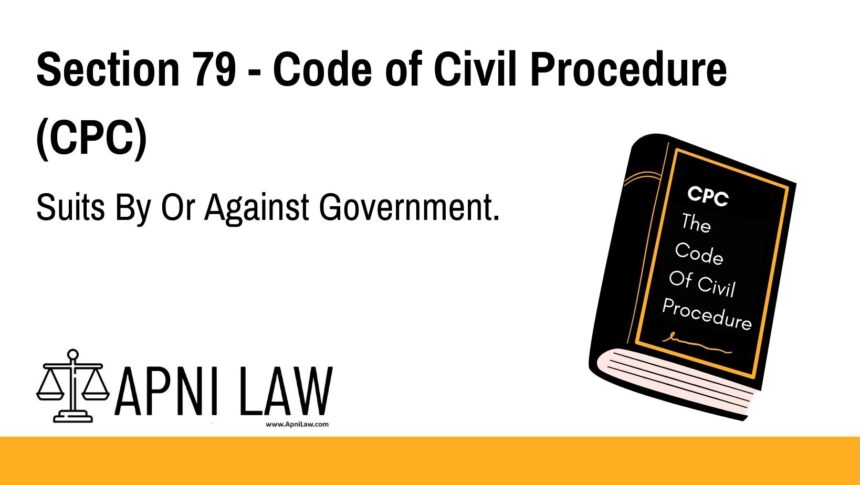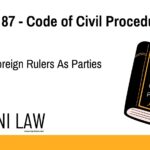Code
CPC1[79]]]. Suits by or against Government.–In a suit by or against the Government, the authority to be
named as plaintiff or defendant, as the case may be, shall be(a) in the case of a suit by or against the Central Government,2[the Union of India], and(b) in the case of a suit by or against a State Government, the State.]
Here’s an ApniLaw-style article for the CPC provision you shared:
Section 79 CPC – Suits by or against Government
Code Text (Formatted)
Section 79 CPC – Suits by or against Government
In a suit by or against the Government, the authority to be named as plaintiff or defendant, as the case may be, shall be:
(a) In the case of a suit by or against the Central Government, the Union of India; and
(b) In the case of a suit by or against a State Government, the State.
Explanation
Section 79 CPC clarifies who should be named as a party in legal proceedings involving the Government:
- Purpose: To avoid confusion or misnaming of the Government in civil suits.
- Scope:
- Central Government: Any suit involving the Central Government must name the Union of India.
- State Government: Any suit involving a State Government must name the State itself as the party.
- Practical Importance:
- Ensures the correct legal entity is recognized in court.
- Helps in proper service of notices and execution of decrees against or by the Government.
- Applies to all civil suits under CPC.
Illustration
- Suit by Government:
- The Central Government files a suit for recovery of dues from a contractor.
- The plaintiff must be named as “Union of India”, not a ministry or department.
- Suit against Government:
- A citizen files a claim for compensation against the State Government.
- The defendant must be named as the State (e.g., “State of Karnataka”).
Common Questions & Answers
Q1. Can a ministry or department be directly named as a party in a suit?
👉 No. Section 79 requires the Union of India or the State to be the named party. Individual ministries or departments act on behalf of the Government.
Q2. Does Section 79 apply to tribunals or autonomous bodies?
👉 No. It specifically applies to suits by or against the Central or State Governments. Autonomous bodies may be sued in their own name under separate statutes.
Q3. Why is proper naming important?
👉 Proper naming ensures that:
- Notices are validly served,
- The Government’s legal obligations are recognized, and
- Execution of decrees is enforceable.
⚖️ Conclusion:
Section 79 CPC ensures clarity in civil litigation involving the Government by specifying the correct legal entity to be named as plaintiff or defendant. This avoids procedural defects and ensures effective judicial action against or by the Government.








